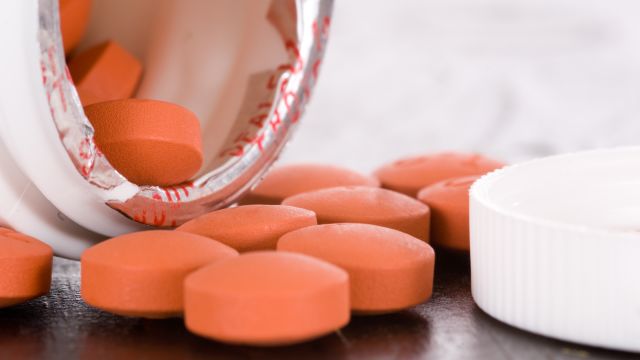It's long been known that there's a link between ibuprofen and heart problems. But a Danish study published in April 2017 shows just how strong that connection might be: taking the drug was tied to a 31 percent increased risk of cardiac arrest.
The study looked at 29,000 cardiac arrest patients over the 10-year period between 2001 and 2010. About 3,400 had taken prescription non-steroidal anti-inflammatory drugs (NSAIDs) in the previous 30 days. Ibuprofen and another drug, diclofenac, were tied to the increased risk of cardiac arrest, while other NSAIDs like naproxen, rofecoxib and celecoxib were not associated.
Cardiac arrest is when the heart stops suddenly. It’s not the same thing as a heart attack, in which a blocked artery causes damage to the heart muscle. That said, studies have also found connections between ibuprofen and an increased risk of heart attack, as well as heart failure and stroke. The U.S. Food and Drug Administration (FDA) has required warnings about heart risks on NSAID labels since 2005. The FDA says that the risks can occur early in treatment, even in the first few weeks of use.
While the results of the Danish study might sound ominous, there are some key factors that could have skewed the results. For one thing, patients may have had existing health issues, explaining the need for prescription medication. Additionally, those taking over-the-counter NSAIDs weren't accounted for, and duration and dose of the drugs went unmentioned. Finally, Danes have different lifestyles than Americans, meaning the conclusions might not hold strictly true in the U.S.
Still, you should exercise caution when taking NSAIDs—or any painkiller—especially if you have cardiovascular disease. The FDA recommends you read the labels on all drugs and use medications only how they're intended. If you take ibuprofen or another NSAID, use the smallest dose that works, and stop altogether if you experience chest pain, breathing problems or other symptoms of heart problems or a stroke.
Of course, if you're worried about side effects or have questions, check with your doctor, who can tell you which pain reliever is right for you. If you already have heart disease or high blood pressure, talk to your doctor before taking an NSAID.






